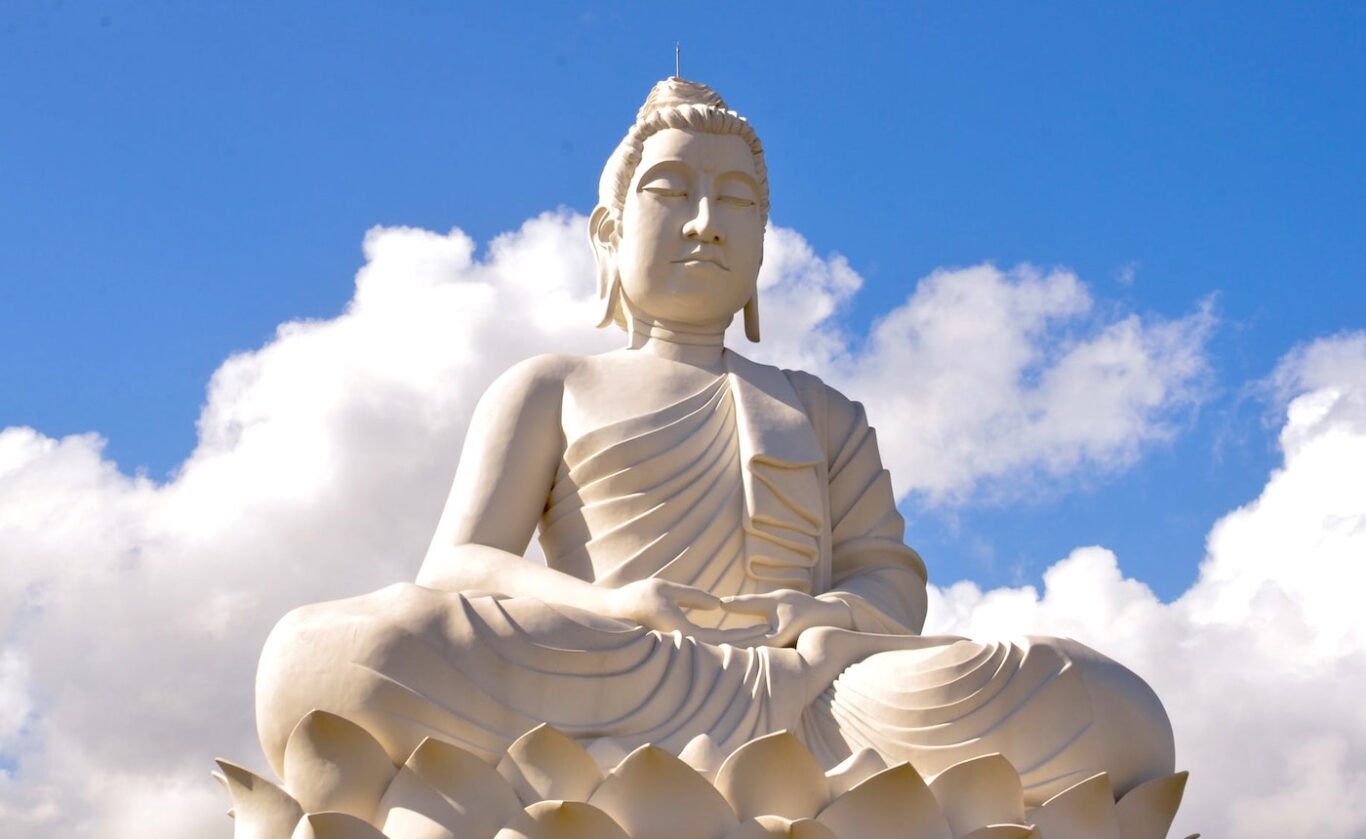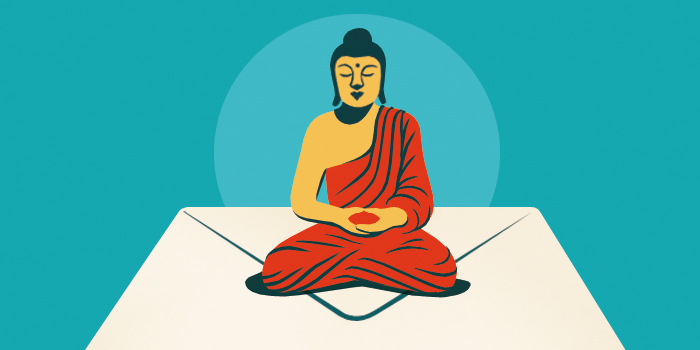What is buddhanature?

A Buddha sits upon a lotus in front of clouds and a blue sky. | Source: Unsplash
Buddhanature is the response to the question: how can an ordinary person become a Buddha? Buddhanature points to the aspects of ordinary people that are in some way already the same as a Buddha. While this is a basic principle of Mahayana Buddhism, which includes the schools of Buddhism that developed in China, Japan, and Korea as well as Tibet, interpretations of it vary widely.
Some schools teach that buddhanature is a seed or potentiality that must be developed. In others, buddhanature is understood to be completely present but obscured by our delusions. Either way, buddhanature can become actualized and experienced through practice.
One of the earliest texts to talk about buddhanature is the Mahaparinirvana Sutra―the Nirvana Sutra for short―which probably was written in Kashmir in the 3rd century CE. It introduced the teaching of tathagatagarbha, “womb of the buddhas,” which confers to all beings the potential to become buddhas. The sutra also describes the buddhadhatu, or buddha element, common to all beings. This element or potentiality appears to be derived from a description in the early sutras of a “luminous mind” that is always present, whether we are aware of it or not.
As the teaching of buddhanature spread among the Mahayana schools, some scholars argued that understanding buddhanature as an essence or element that beings possess makes it something like a self-essence, which puts the principle at odds with another important Mahayana teaching—shunyata, or emptiness—which says that beings are empty of self-essence.
This seeming discrepancy has been resolved in various ways. Many traditions interpreted buddhanature in relationship to the nature of the mind itself; buddhanature was something about the mind that is the same as a Buddha’s mind. For example, in China buddhanature came to be associated with a level of awareness called the storehouse consciousness, which also contains the seeds of karma. Simply put, in this view buddhanature is an essential nature of mind, but not a “self.”

Tricycle is more than a magazine
Gain access to the best in sprititual film, our growing collection of e-books, and monthly talks, plus our 25-year archive
Subscribe now